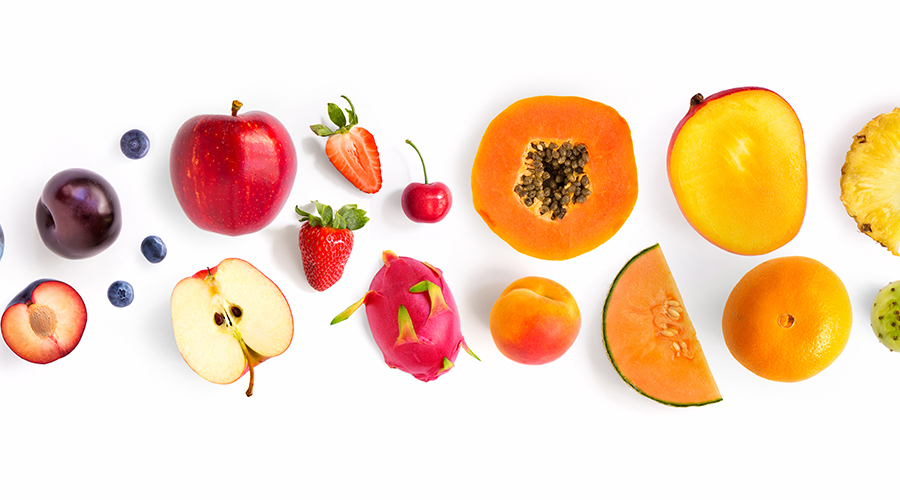

Your eating habits can have an impact on your bones. Your first step in leading a healthy lifestyle should be eating a fruit-rich diet for bone strength. Knowing which fruits are high in calcium, vitamin D, vitamin K, magnesium, and other vital nutrients for your bone strength and general health is beneficial.
Your everyday meal choices will become healthier due to your knowledge about the benefits of fruits for bones. So, on that note, which is the best fruit for bones? Examples of fruits high in vitamin C are oranges, bananas, plantains, prunes, grapefruits, strawberries, papaya, pineapples, and guavas. In addition, fruits rich in vitamin K, like figs, blueberries, raspberries, plums, and grapes are healthy for bones.
The vitamins and minerals your body needs to develop and maintain bone mass can be found in fruits. Fruits also include magnesium, vitamin K, and calcium – all of which are vital for strong bones.
It goes without saying that there is a very deep and concrete bond between our body and its required nutrition. In order to have strong and healthy bones, you must include at least one meal comprising of calcium rich fruits and other vital nutrients. It is recommended for every person, whether a 4-year-old or a 40-year-old, to have healthier daily meal choices to strengthen their bones and muscles.
Now, the question arises of which fruit is best for bones? Every fruit has some or the other minerals available in it that will add value to our daily meal planner.
Examples of fruits high in vitamin C are oranges, bananas, plantains, prunes, grapefruits, strawberries, papaya, pineapples, and guavas. In addition, fruits rich in vitamin K, like figs, blueberries, raspberries, plums, and grapes, are healthy for bones. Most of the fruits have ample vitamins and minerals essential for the bones’ development and strength. Fruits also include magnesium, vitamin K, and calcium – vital for strong bones.
Why Should You Eat Fruits for Bone Strength?
Fruits contain magnesium in it. This mineral aids in the body’s absorption of calcium, which is important for maintaining and regenerating bones. Magnesium is a cofactor in more than 300 biochemical reactions that your body needs to run smoothly. It is crucial for both digestion and calcium absorption.
Which fruit is best for bones? The answer is every fruit has one or the other mineral that is beneficial for the bones. Fruits naturally contain magnesium, which is crucial to the body’s calcium absorption. This process is essential for maintaining and regenerating bones. Additionally, magnesium acts as a cofactor in over 300 biochemical reactions necessary for the smooth functioning of your body, including digestion.
Women need 310 to 320 mg of magnesium daily, whereas males need 400-420 mg to ensure appropriate levels in the body.
Oranges can be easily counted among the fruits good for bones, as they contain up to 60 mg of calcium and 15 mg of magnesium. Other fruits like figs are also good for your bones. About 10 figs contain 136 mg of calcium and 57 mg of magnesium.
Fruits like the ones mentioned below can be easily found in grocery stores. Due to the magnesium they contain, they are healthy for bones.
- Bananas
- Blackberries
- Figs
- Grapefruit
- Guava
- Jackfruit
- Kiwi
- Passion Fruit
- Plantain
- Raisins
- Raspberries
- Strawberries
- Watermelon
Experts advise getting enough calcium consuming calcium-rich fruits to maintain strong bones and vitamin D to aid calcium absorption. An increased chance of fracturing a bone due to a fall later in life is associated with poor bone health, which can result in diseases like rickets and osteoporosis. Calcium fruits for bones help in improving general health as well. What other nutritional qualities do fruits provide to support bone health?
Vitamin K in Fruits Helps Fight Osteoporosis
The National Osteoporosis Foundation estimates that 44 million people have low bone density and 10 million have osteoporosis. Accordingly, 50% of people over the age of 50 should be concerned about their bone health because they run the risk of breaking a bone. Therefore, how can fruits for bones aid in the fight against osteoporosis and other diseases? The body uses vitamin K, which is present in many fruits, to produce proteins that help build bones. By regulating osteoblasts and osteoclasts, vitamin K also aids in forming new bones.
Don’t forget to include these vitamin K-rich fruits for bones in your diet:
- Blackberries
- Blueberries
- Figs
- Kiwi fruit
- Plums
- Pomegranates
- Raspberries
- Grapes
- Mulberries
Calcium-Rich Fruits Protect, Build, and Repair Bones
A crucial component for both strong bones and overall health is calcium. A 1,200 mg of calcium daily is necessary for healthy body function. When your calcium levels fall below a certain threshold, your body responds by removing this vital mineral from where it is stored – in your bones.
Eating a range of foods, especially fruits for bones, will help you maintain good bone health by consuming a diet high in calcium.
Fruits that are rich in calcium are:
- Kiwi
- Prickly pear
- Tangerines
- Oranges
- Blackberries
- Apricots
- Guavas
- Papaya
- Mulberries
- Passion fruit
Thus, by consuming more fresh fruit, we can improve our bone health by lowering the usual less wholesome or nutritious methods, such as taking dairy products. Let’s learn more about how fruits can help build bones now that we are more aware of the importance of calcium in maintaining healthy bones.
Why are Fruits Good for Bones?
For those wondering which fruit is best for bones, it’s essential to understand how fruits work with your bone structure to keep it healthy and well-nourished.
Numerous fruits include calcium, vitamin C, and vitamin D – essential for preventing osteoporosis and fostering strong, healthy bones. Fruits are excellent digestive balancers as well. Fruits neutralise stomach acid in a similar way that calcium in antacid tablets does to treat indigestion. When the pH balance of your blood becomes more acidic, your body experiences a similar chemical reaction. Your body removes calcium and other minerals from your bones, weakening them to neutralise the pH level of your blood and ensure that your organs continue to work as intended.
Fruits create alkaline-like chemicals during digestion to maintain a more balanced pH level. Fortunately, many of the same fruits and vegetables that regulate the acidity in your body also include calcium, magnesium, and vitamin K, making it more straightforward for you to consume enough of them to strengthen your bones.
The significance of maintaining optimal bone health is increasing due to the prevalence of skeletal conditions worldwide, including osteoporosis. Our bones lose calcium and other essential minerals as we age, resulting in reduced density and increased fragility. Women experiencing menopause are particularly vulnerable because the decline in estrogen makes their bones more brittle. To support bone health and strength, ensure your diet includes daily servings of calcium-rich foods for bones. Remember that proper nutrition plays a crucial role in maintaining healthy bones. Consuming foods rich in calcium, phosphorus, zinc, magnesium, and vitamins D, K, and A is essential for bone metabolism and overall well-being.
How Much Fruit to Consume to Keep Bones Healthy?
The importance of maintaining good bone health is growing as many people all over the world suffer from skeletal conditions, including osteoporosis.
Our bones lose calcium and other minerals as we age, which reduces their density and makes them thinner and more fragile. Women who are going through menopause may become even more vulnerable because the loss of oestrogen makes the bones more brittle.
Your body will receive the nutrients it needs to support the health and strength of your bones if you prepare fruits in a way that you enjoy and consume a few servings each day. You can keep your bones healthy by eating two cups of veggies and one and a half cup of fruit each day.
Conclusion
We hope this post has answered your question about which fruits are good for bones and why you should include them in your diet. Therefore, increase the amount and variety of fruits and vegetables in your diet that are rich in bone-building vitamins and minerals. However, if you are still concerned about bone health, talk to your family doctor, a nutritionist, or an ortho specialist.





Why are apples not among the recommended fruits? Not significant factor for bones? What are they beneficial for?
“Apples are very nutritious fruit, but they might not be as commonly associated with bone health as some other fruits. But, that doesn’t mean they aren’t beneficial for your overall health.
Apples are good source of fibre and therefore support digestive health and help regulate blood sugar levels. They also contain antiinflammatory antioxidants which helps in reducing the risk of chronic diseases, including heart disease, diabetes, and certain types of cancer. They are also good for maintaining hydration as they have good water content. “
Great read!!! Thanks for sharing such a great blog.